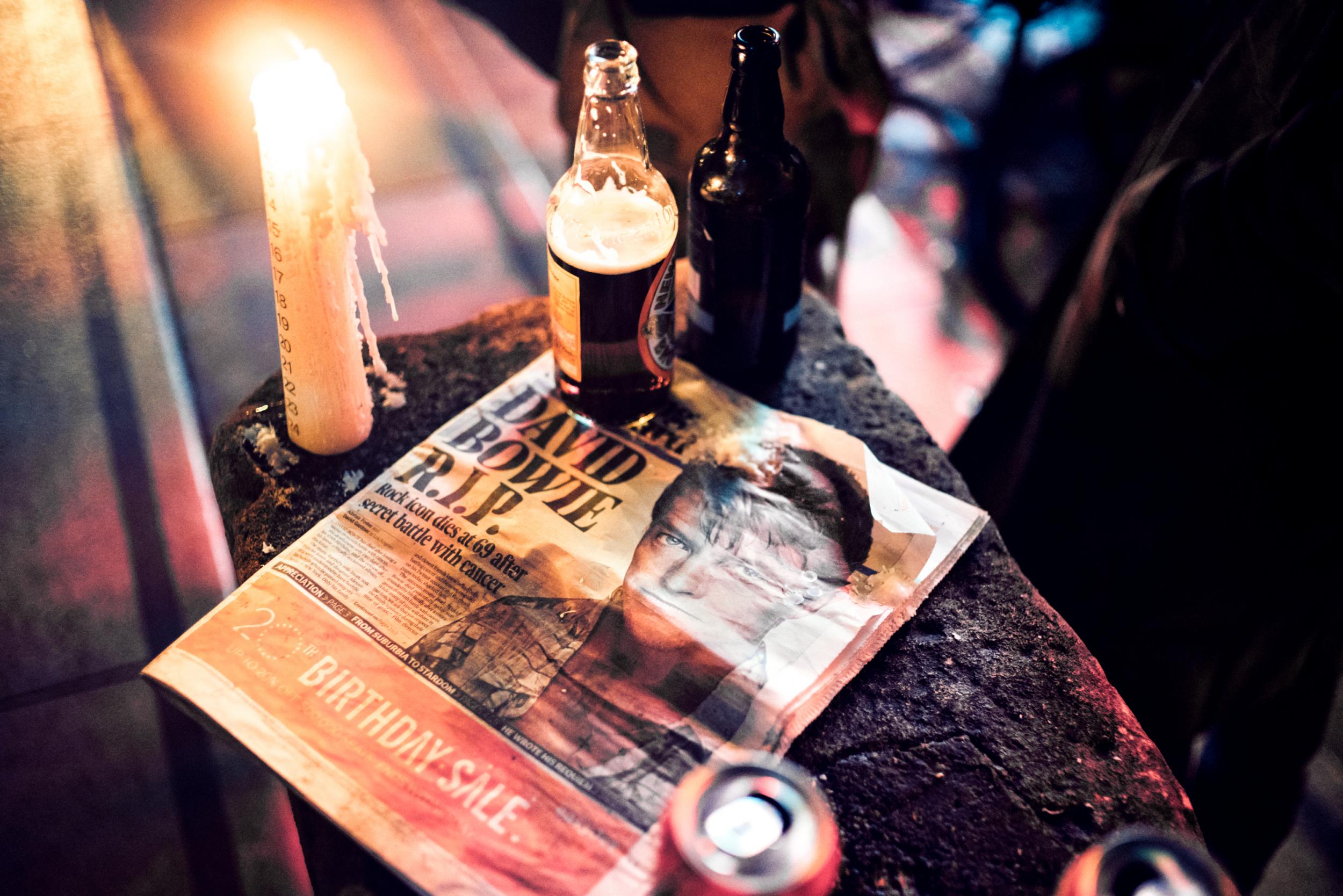Chuck Klosterman has a theory on why we've become hysterical over celebrity deaths
'We now need these celebrity deaths to have shared experiences'

Our response to the death of beloved musicians, actors, authors etc has undeniably ratcheted up since the advent of social media, turning us all into gushing (and yet 140-character concise) self-appointed eulogisers.
But why? Why once was our reaction ‘oh that’s said, they made some good movies’, but now we’re claiming to be in tears and flocking to landmarks to hold up candles?
Essayist and pop culture obsessive Chuck Closterman has an idea, and oddly enough it’s rooted in the demise of scheduled television as a ‘talking point’.
“It’s very clear to me that by splitting up television so that there’s just no monoculture, nothing is shared, that we now need these celebrity deaths to have shared experiences,” he told Marc Maron on his WTF Podcast. “That’s the only way that people can know we’re all having the same emotional exchange at the same time.
“When Prince dies or David Bowie or Lemmy dies it just sort of gives people this ability to openly emote about it, you don’t even have to necessarily have had though about [the deceased] for 15 years.”
His theory doesn’t completely explain the trend, but it’s easy to see how the fragmentation of pop cultural conversations could be a factor in our almost overwhelming togetherness upon the passing of a notable individual.
Maron jumped in to point out that the dystopian notion of competitive grievance could also be at play here.
“Not only can you openly emote because of social networking platforms,” he said, “you can make it about you and try to construct a proper eulogy in 140 characters that will be somewhat celebrated and recognised by other people.”
Klosterman agreed, and noted that this bizarre race for tribute retweets is distasteful even to the people doing it.
“And it’s strange, even the people who do that would say they hate it. Like, no-one is saying ‘uh, finally!’, everyone says it’s terrible including the people who seem to do it every time it happens.”
You can listen to the podcast interview in full here.
Join our commenting forum
Join thought-provoking conversations, follow other Independent readers and see their replies
Comments
Bookmark popover
Removed from bookmarks